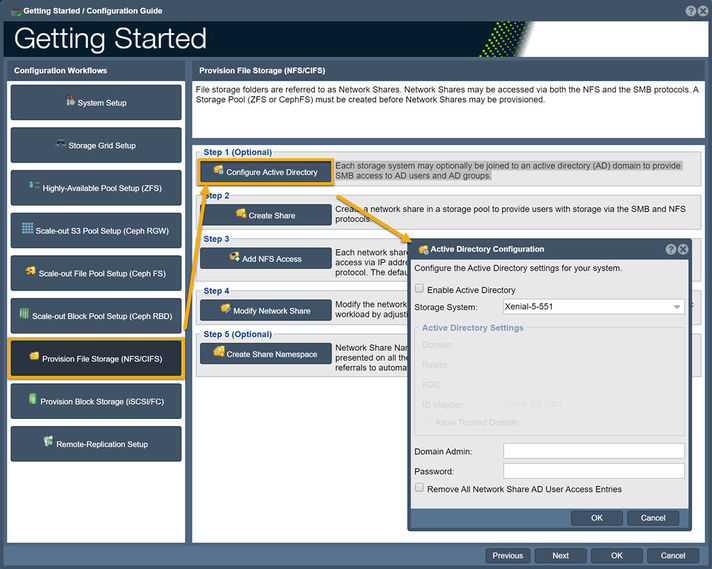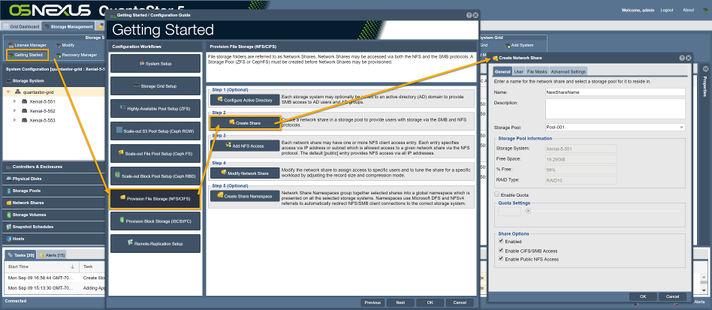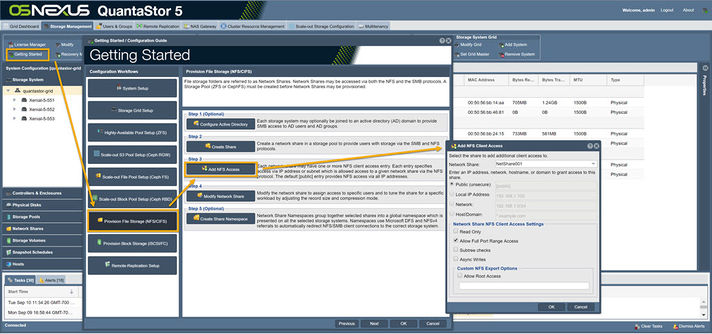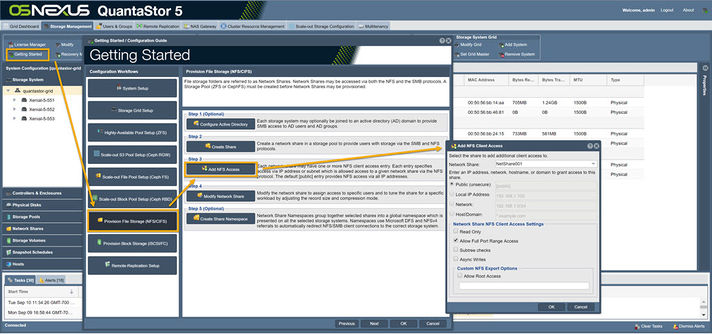File Storage Provisioning
File storage folders are referred to as Network Shares. Network Shares may be accessed via both the NFS and the SMB protocols. A Storage Pool (ZFS or CephFS) must be created before Network Shares may be provisioned.
Contents
Step 1 (Optional): Configure Active Directory
Each storage system may optionally be joined to an active directory (AD) domain to provide SMB access to AD users and AD groups.
Create a network share in a storage pool to provide users with storage via the CIFS/SMB and NFS protocols. This step works with Microsoft Active Directory to assign network shares to users and groups. Set up Active Directory using the Setup Active Directory button in Workflow Manager, or click on the button Configure Active Directory in the toolbar under "Network Share" in "Storage Management".
For more information, refer to the Network Share Configure CIFS page.
Step 3: Add NFS Access
Creates additional client access for the network share. Click on the Add NFS Client Access button in Workflow Manager, or rightclick on the target network share under "Network Share" and click "Add NFS Access".
For more information, refer to the Add NFS Client Access page.
Lets you control the network share's settings such as compression, quotas, and sync policies. Click on the Modify Network Share button in Workflow Manager, or the Modify button under "Network Share". Network share can be modified to assign access to specific users and tune the share for a specific workload by adjusting the record size and compression mode. For more information, refer to the Modify Network Share page.
Network Share Namespaces group together selected shares into a global namespace which is presented on all the selected storage systems. Namespaces use Microsoft DFS and NFSv4 referrals to automatically redirect NFS/SMB client connections to the correct storage system.



